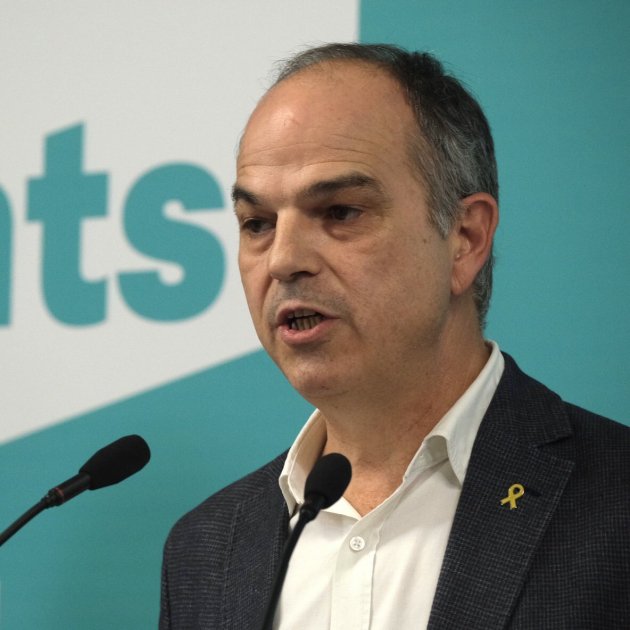Just over two weeks ago Together for Catalonia (Junts) decided to leave the Catalan government after its grass roots membership voted for that option in a consultation. Its former pro-independence partner Catalan Republican Left (ERC) now governs in a minority and it appears that president Pere Aragonès is planning to continue in that fashion. This Monday morning it was made public that the Spanish government would be willing to halve the penalty for sedition, as reported by El País, an idea that the general secretary of Junts, Jordi Turull, has rejected, with the demand that the crime of sedition must be directly repealed. The Spanish government's idea is presented as an attempt to make Spanish and European legislation comparable, as Spain's Penal Code currently provides for a maximum sentence of 15 years for sedition, while in Europe the average for a comparable offence is six years. But Junts don't want to hear about this. "The reform that's due is the repeal of this crime", stressed Turull, while pointing out that a reform could be even more harmful. "If we want to adapt to European standards, the crime of sedition must be repealed," he insisted. Turull himself was one of the nine Catalan political prisoners sentenced to nine to 13 years' jail for sedition over the Catalan independence process, sentences that were heavily criticised by international bodies and human rights groups.
Turull appeals to Aragonès's responsibility
Turull made these statements in an interview on the Aquí Catalunya programme of the SER radio network, on which he explained that his party is not considering a motion of censure against Aragonès because that would involve reaching agreements with groups with whom they have nothing in common; however, Turull appealed to the president himself and assured him that in Europe the current government situation would be resolved through a confidence vote or the calling of elections. "The current situation in Parliament is unprecedented", recalled the Junts leader who insisted that the ERC government "only has the confidence of its own parliamentary group". In the same way, Turull recalled that at the last plenary session of the Parliament, "everything that Junts had proposed was passed and nothing that the government itself proposed". He made this reflection in relation to the proposed statistical plan law, which initially had the support of Junts, but now that they are not in the government, they overturned it. According to Turull, it is because "we no longer feel bound to anything that was done based on loyalty to ERC".
Passing the budget
On the budget that the Catalan government is seeking to pass and on ERC's constant appeal to Junts to give them the necessary support to take it forward, Turull explained why his party is not convinced by the reasoning that they should vote for the budget because it was prepared by Junts ex-minister Jaume Giró. According to the general secretary of the party, "the budget had limitations typical of a coalition government agreement, now that agreement does not exist because one party did not want to fulfill it, and now Junts defends its own budget policy". With these words, Jordi Turull asked ERC not to say that the current budget proposal also belongs to Junts. However, the general secretary of the party assured that if ERC's new economy minister, Natàlia Mas, calls for a meeting, Junts will present themselves with all their demands.
ERC won't be drawn on sedition
Changes must be made to the crime of sedition in the Spanish Penal Code, on that point, the Catalan Republican Left are clear on that. But this Monday deputy general secretary and spokesperson for the party, Marta Vilalta, dodged questions demanding clarity on exactly what those changes will entail. After the Spanish government leaked a proposal in El País to reduce sedition penalties - rather than wiping from the books the much criticised offence that was used to justify long jail terms for the the Catalan political prisoners - ERC responded that they will be "very demanding" in negotiations with the Pedro Sánchez executive, because this is what European and international bodies demand. But Marta Vilalta would not be drawn on how should this be done, through a reduction in penalties or through the abolition of the offence itself. "The state already knows what it has to do", that it has to make the "appropriate reforms", said Vilalta, adding that they do not want enter "public auctions". Nor has it clarified whether they will send their own reform proposal to the Spanish government. There were a dozen questions on the subject at today's ERC press conference, but Vilalta did not depart from her very guarded script.
